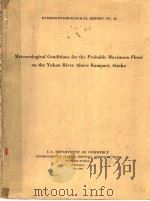《The probable and the provable》
| 作者 | Cohen;L. Jonathan 编者 |
|---|---|
| 出版 | Clarendon Press |
| 参考页数 | 363 |
| 出版时间 | 1977(求助前请核对) 目录预览 |
| ISBN号 | 0198244126 — 求助条款 |
| PDF编号 | 813700178(仅供预览,未存储实际文件) |
| 求助格式 | 扫描PDF(若分多册发行,每次仅能受理1册) |
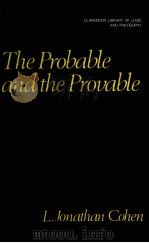
Introduction1
PART Ⅰ.CAN THERE BE A NON-PASCALIAN CONCEPT OF PROBABILITY?5
1.The Problem for a Polycriterial Theory of Proba-bility5
1.One criterion, or many?5
2.The mathematicist theory9
3.The family-resemblance theory10
2.Probability as the Gradation of Provability13
4.The degree-of-provability theory13
5.Proof-criteria that are general, necessary and exten-sional17
6.Proof-criteria that are general, contingent, and extensional19
7.Proof-criteria that are general, contingent, and non-extensional21
8.Proof-criteria that are singular and either necessary or contingent24
9.Probability-statements as evaluations of inferential soundness27
3.The Completeness Issue33
10.The connection between deductive completeness and mathematical probability33
11.The grading of probabilities by evidential weight36
12.Mathematical and inductive probability39
13.The example of judicial proof43
PART Ⅱ.SIX DIFFICULTIES FOR A PASCALIAN ACCOUNT OF JUDICIAL PROBABILITY49
4.What are the Standards of Proof in Courts of Law?49
14.The difference between the criminal and civil standards49
15.Theories about judicial probability51
16.The nature of the argument against a mathemati-cist theory56
5.The Diffculty about Conjunction58
17.The constraint on complexity in civil cases58
18.The independence issue61
19.Does the balance of probability lie between the plaintiff’s and the defendant’s contentions?62
20.Does the balance of probability consist in the difference between prior and posterior probabili-ties ?63
21.Does the plaintiff’s contention need evaluation as a whole?65
6.The Diffculty about Inference upon Inference68
22.Permissiveness in regard to two- or many-stage proofs68
23.Is the constraint on inference upon inference a purely legal matter?71
7.The Diffculty about Negation74
24.The paradox of the gate-crasher74
25.What is the threshold of proof in civil cases?76
26.When are statistical probabilities admissible evi-dence?78
8.The Diffculty about Proof beyond Reasonable Doubt82
27.Reasons for doubting guilt82
28.The role of statistical probabilities in judicial proof83
9.The Diffculty about a Criterion87
29.The inapplicability of Carnapian criteria87
30.The inapplicability of betting odds89
31.The hiatus to be filled91
10.The Difficulty about Corroboration and Con-vergence93
32.The common structure of testimonial corroboration and circumstantial convergence93
33.The traditional, Bernoullian analysis95
34.The need to take prior probabilities into account97
35.A demonstrably adequate analysis ofcorroboration and convergence in terms of mathematical proba-bility101
36.The legal inadmissibility of positive prior proba-bilities107
37.The method of contraposition114
11.The Case against a Mathematicist Account of Judicial Probability116
38.The impact of accumulated anomalies116
39.The existing standards of assessment118
PART Ⅲ.THE ELEMENTS OF INDUCTIVE PROBABILITY121
12.The Foundations of Inductive Logic121
40.Inductive probability and inductive support121
41.On what foundations should a theory of inductive support be based?123
13.The Grading of Inductive Support129
42.An example of inductive support-assessment in entomology129
43.The importance of evidential replicability133
44.The definition of a series of inductively relevant variables135
45.Ontology versus epistemology in the philosophy of inductive support140
46.The subsumption of Mill’s canons under the method of relevant variables144
47.How the method of relevant variables applies to scientific theories151
48.Whewell’s consilience, and Lakatos’s progressive problem-shift, as inductive criteria157
49.The problem of anomalies162
14.The Logical Syntax of Inductive Support-gradings167
50.The conjunction principle for inductive support167
51.The uniformity principle for inductive support170
52.Some consequences of evidential replicability175
53.The negation principle for inductive support177
54.Some consequences of modifying a generalization in order to ensure reliability182
15.The Incommensurability of Inductive Support and Mathematical Probability187
55.The argument from the possibility of anomalies187
56.The argument from the conjunction principle:rst stage190
57.The argument from the conjunction principle:second stage196
16.The Grading of Inductive Probability199
58.The relation between inductive support and inductive probability199
59.The balancing off of favourable and unfavourable circumstances in the assessment of an inductive probability202
60.The asymmetric effects of favourable and un-favourable evidence207
61.Inductive probability as a grading of evidential informativeness211
62.The presumption of total evidence213
17.The Logical Syntax of Inductive Probability-gradings217
63.Some logical similarities between inductive and mathematical probability217
64.Some logical differences between inductive and mathematical probability219
65.The incommensurability of inductive and mathe-matical probability224
66.A formal axiomatization for the logical syntax of inductive probability229
PART Ⅳ.SOME APPLICATIONS OF INDUCIVE PROBABILITY245
18.The Assessment of Judicial Proof245
67.Are there any uses for the concept of inductive probability?245
68.Proof beyond reasonable doubt247
69.Proof on the preponderance of evidence252
70.Contextual clues to the disambiguation of pro-bability-sentences256
19.An Inductivist Resolution of Six Diffculties for a Pascalian Account of Judicial Proof265
71.The difficulty about conjunction265
72.The difficulty about inference upon inference267
73.The difficulty about negation270
74.The difficulty about proof beyond reasonable doubt272
75.The difficulty about a criterion273
76.The difficulty about corroboration and conver-gence277
20.Criteria of Merit for Explanations of Individual Events282
77.Hempel’s theory of explanation for individual events282
78.Covering laws for both proofs and explanations284
79.The grading of explanatory completeness285
80.The merit of the explanation tends to vary inversely with the generality of the covering law291
21.Statistical Explanation295
81.Hempel’s account of statistical explanation295
82.The need to maximize inductive probability for the appositeness of the reference-class297
83.The need for favourable relevance rather than a high mathematical probability300
84.Salmon’s rejection of the relevance requirement303
85.The need for a propensity interpretation306
22.Criteria of Rational Belief310
86.The problem of the detachment conditions for dyadic judgements of probability310
87.Difficulties for the formulation of an acceptance-rule in terms of mathematical probability312
88.Four unsatisfactory proposals for resolving the difficulties314
89.The advantages of formulating an acceptance-rule in terms of inductive probability318
23.Dispositions325
90.Some difficulties in current truth-functional analyses of dispositions325
91.The inductive probability implicit in a disposi-tional statement327
92.Nominalism versus realism in the philosophy of inductive support331
93.Can one be a nominalist on some issues but not on others?336
94.The nominalist interpretation is epistemologically,not ontologically, superior339
24.An Epistemological Corollary345
95.The prevailing scepticism in the philosophy of science345
96.If inductive knowledge of comparative reliability is possible, so is knowledge of complete reliabityty348
97.Inductive knowledge does not imply knowing that one knows350
98.The prevalence of scepticism is due largely to an inadequate understanding of inductive logic351
Index357
1977《The probable and the provable》由于是年代较久的资料都绝版了,几乎不可能购买到实物。如果大家为了学习确实需要,可向博主求助其电子版PDF文件(由Cohen;L. Jonathan 1977 Clarendon Press 出版的版本) 。对合法合规的求助,我会当即受理并将下载地址发送给你。
高度相关资料
-

- THE COMING RACE AND THE HAUNTED AND THE HAUNTERS
- 1928 OXFORD UNIVERSITY PRESS
-
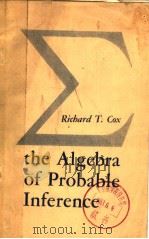
- THE ALGEBRA OF PROBABLE INFERENCE
- THE JOHNS HOPKINS PRESS
-

- THE LION THE WITCH AND THE WARDROBE
- 1950 SCHOLASTIC INC
-

- The silkworm and the dragon
- 1968 Arizona State Museum
-

- The fox and the camellias
- 1961 Jonathan Cape
-

- THE KING AND THE CORPSE
- 1976 PRINCETON UNIVERSITY PRESS
-

- THE PROBABLE INFINITY OF NATURE AND LIFE
- 1918 RICHARD G. BADGER
-
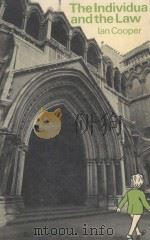
- The individual and the law
- 1979 Butterworths
-

- THE LION AND THE LAMB
- 1922 THE ABINGDON PRESS NEW YORK CINCINNATI
-

- TAKING SIDES CLASHING VIEWS ON CONTROVERSIAL PSYCHOLOGICAL ISSUES TENTH EDITION
- 1998 DUSHKIN/MCGRAW-HILL
-
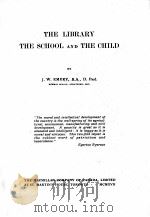
- THE LIBRARY THE SCHOOL AND THE CHILD
- 1917 MACMILLAN
-

- DHEU ESHTE FLORI
- 1957 NDERMARJA SHTETRORE E BOTIMEVE
提示:百度云已更名为百度网盘(百度盘),天翼云盘、微盘下载地址……暂未提供。➥ PDF文字可复制化或转WORD


